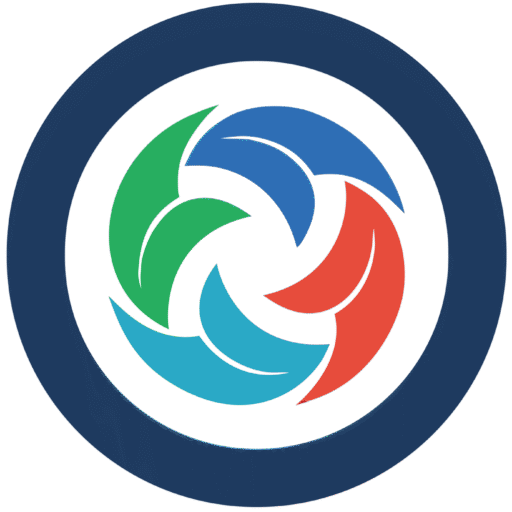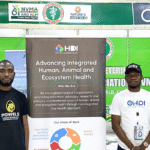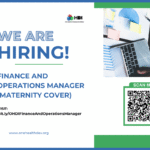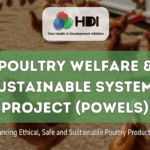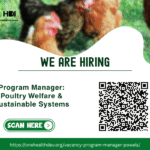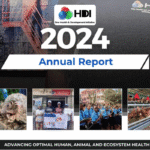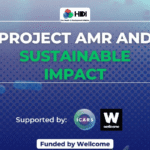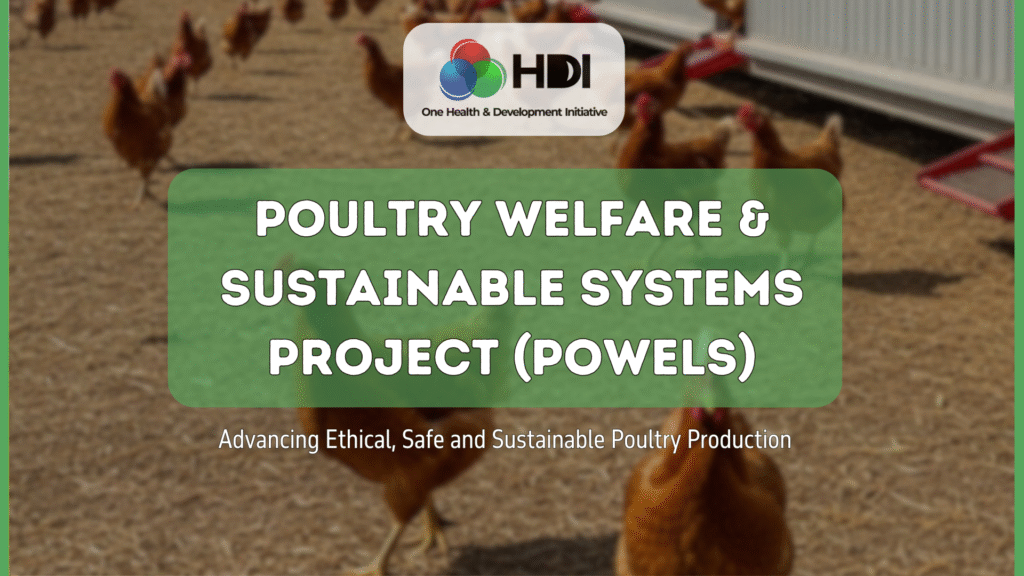
Announcing POWELS: Poultry Welfare and Sustainable Systems in Nigeria
We are thrilled to announce the launch of Project POWELS – Poultry Welfare and Sustainable Systems, a bold new initiative led by One Health and Development Initiative (OHDI) and supported by the Open Philanthropy Fund. POWELS is a two-year national program designed to transform Nigeria’s poultry sector by promoting humane, welfare-centered, safe and sustainable farming systems. This program builds directly on years of OHDI’s groundwork in hen welfare, research, farmer engagement, and advocacy, and represents a major leap forward for animal welfare and food system reform in Nigeria.
Why POWELS?
The Nigerian poultry industry is one of the largest in Africa and a vital contributor to food security and livelihoods.The sector produces over 650,000 metric tons of poultry meat and more than 21 billion eggs annually. However, it remains largely reliant on intensive housing systems such as battery cages. While these systems have supported scale and productivity, they also present challenges for aligning with evolving standards and practices that improve the overall welfare of poultry. Beyond animal care, there are wider considerations, including food safety, antimicrobial resistance (AMR), environmental sustainability, and long-term sector resilience, that make it timely to explore more sustainable, safe and welfare-conscious production models.
Through POWELS, OHDI aims to support the Nigerian poultry industry in exploring and adopting more sustainable and welfare-conscious production models. The program focuses on empowering farmers with practical tools and training, engaging policymakers on evolving standards, raising consumer awareness, and building market opportunities that recognize responsible, ethical and safe production. At its core, the initiative reflects the understanding that strengthening poultry welfare practices goes hand-in-hand with improving food safety, reducing risks such as antimicrobial resistance (AMR), enhancing environmental sustainability, and building a resilient poultry sector for the future.
What POWELS Will Do
POWELS will scale impact by working across five interconnected pillars:
- Policy Advocacy & Legal Reform
POWELS will work closely with government agencies and legislators to strengthen Nigeria’s policy and regulatory framework for poultry production. This will include supporting ministries, directorates, and technical units to integrate practical hen welfare standards into national policies and guidelines. By facilitating technical working groups and providing evidence-based recommendations, the program will help shape clear and actionable standards that align with global best practices while remaining context-appropriate for Nigeria.
Rather than positioning reforms as restrictive, the focus will be on enabling the poultry sector to adopt practices that enhance welfare, food safety, productivity, and long-term sustainability. This approach will create opportunities for Nigeria to gradually align with international welfare benchmarks while ensuring that the industry remains competitive and resilient.
- Farmer Transition Support
A central focus of POWELS is to support poultry farmers who are willing to explore and adopt more welfare-friendly and sustainable production systems. The program will provide farmers with practical technical training, model housing designs, and hands-on advisory services that are adapted to Nigeria’s diverse production contexts. This approach ensures that farmers have both the knowledge and the tools they need to make gradual and successful improvements to their production systems.
To further encourage adoption, POWELS will offer mini-grants and tailored technical assistance to pioneering farms across different regions of the country. These farms will serve as demonstration sites, showcasing the practicality and benefits of improved housing and welfare practices. By creating visible models of success, the program aims to inspire wider adoption among farmers, while also building confidence among buyers, policymakers, and consumers that welfare-friendly, safe and sustainable systems are both feasible and beneficial.
- Market Access & Supply Chain Development
POWELS will work to strengthen linkages between farmers and the growing market demand for responsibly produced poultry products. This includes engaging supermarkets, hotels, restaurants, and other institutional buyers to encourage gradual commitments to sourcing from farms that demonstrate compliance with improved welfare and sustainability standards. By building strong relationships with corporate actors, the program will help create reliable demand signals that make investments in better farming systems more viable for producers.
To support transparency, traceability and trust across the value chain, POWELS (in collaboration with relevant stakeholders) will also pilot a POWEL SAFE (Sustainable, Affordable, Food-safe, Ethical) Certification System. This framework will provide assurance to buyers and consumers that products come from farms meeting agreed welfare and sustainability benchmarks. Beyond providing recognition, the certification will also act as a practical market tool to connect farmers with buyers, foster consumer confidence, and open new opportunities for Nigerian poultry producers to remain competitive in evolving local and international marketplaces.
- Consumer Awareness & Public Engagement
POWELS will place a strong emphasis on educating and engaging consumers as a key driver of long-term change in the poultry sector. The program will roll out national multimedia campaigns to raise awareness about poultry welfare, food safety, and the benefits of responsible consumption. Messaging will be carefully designed to reflect local contexts and highlight practical connections between welfare, quality, and public health.
To build credibility and trust, POWELS will collaborate with stakeholders who can translate technical issues into relatable messages for the wider public. By combining evidence with storytelling and relatable voices, the program will help shift perceptions and attitudes gradually, encouraging consumers to value welfare-conscious, safe, and sustainable poultry production. Over time, this public engagement will create stronger demand signals that reinforce farmer transitions and market adoption.
- Technology Integration with RORE
POWELS will leverage OHDI’s digital innovation, the Responsive One Health Resource Engine (RORE), to provide farmers and stakeholders with accessible, real-time support. RORE, an AI-powered multilingual platform, will serve as a digital extension of the program, delivering on-demand learning and advisory on poultry welfare and health, practical cage-free housing improvements, disease prevention, and general farm management.
Beyond training, RORE will function as a two-way communication tool, enabling farmers to ask questions, report challenges, and receive timely guidance tailored to their specific needs. The platform will also gather valuable field-level insights through farmer reporting and feedback, which will be used to inform policy discussions and strengthen advocacy with evidence-based data. By integrating RORE into POWELS, the program ensures that knowledge-sharing and support are not limited to workshops or farm visits but remain continuous, scalable, and accessible to farmers across Nigeria.
Building on Past Achievements
POWELS is not starting from scratch – it is building on the momentum of OHDI’s previous work in poultry welfare, which has already:
- Trained 200+ poultry farmers, veterinarians, and extension officers on cage-free practices.
- Reached 50 million Nigerians through radio and digital advocacy campaigns.
- Deployed 18 veterinary field officers across Nigeria for farm engagement and data collection.
- Engaged with over 18 supermarkets, hotels, and restaurants, with many pledging to support humane sourcing once supply grows.
- Developed a validated Hen Welfare Training Guide and online learning platform.
These achievements have laid the foundation for systemic change. With the collaboration of public and private stakeholders, POWELS is set to consolidate these gains and push the movement toward a tipping point for large-scale adoption of humane, safe and sustainable poultry systems in Nigeria.
A Turning Point for Poultry in Nigeria
POWELS represents a unique opportunity to reshape Nigeria’s poultry sector into one that values animal welfare, farmer livelihoods, consumer safety, and environmental sustainability. It is a movement-building effort, connecting farmers, policymakers, consumers, and businesses in one vision for a healthier, more humane poultry future.
We thank Open Philanthropy for making this possible and for their commitment to global animal welfare and food system reform.
Stay Engaged
Over the coming months, OHDI will be sharing updates, farmer stories, advocacy wins, and ways to get involved. Together, let’s build a future where poultry farming in Nigeria is humane, sustainable, and welfare-driven.

